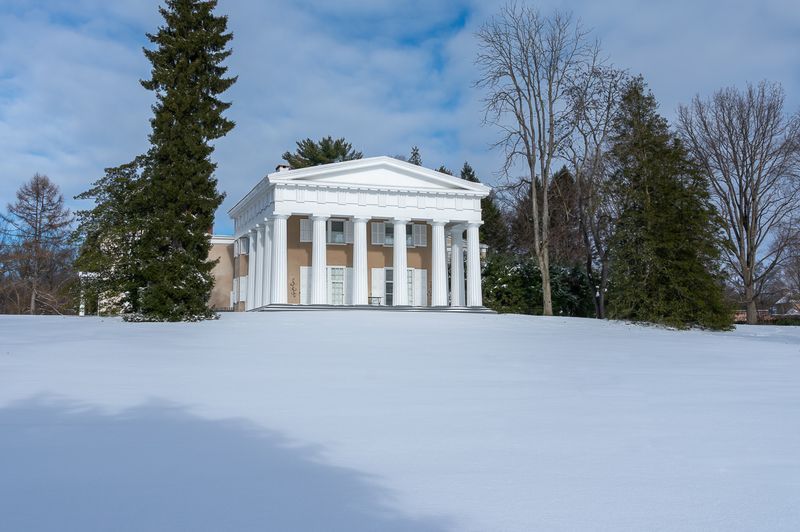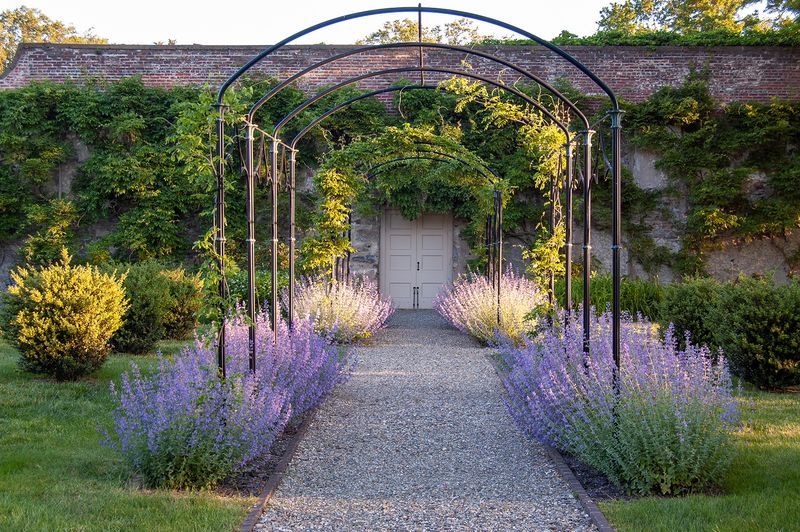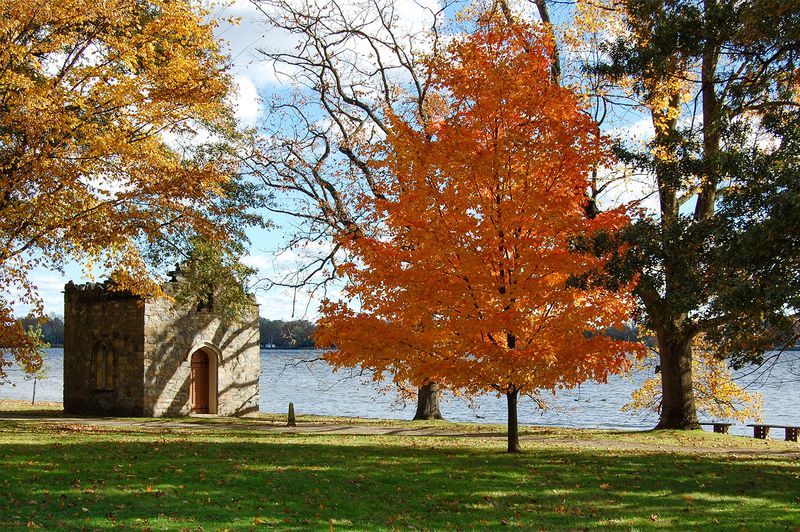July 11, 2019
Aftermath: Aaron Burr & Charles Biddle Following the Burr-Hamilton Duel
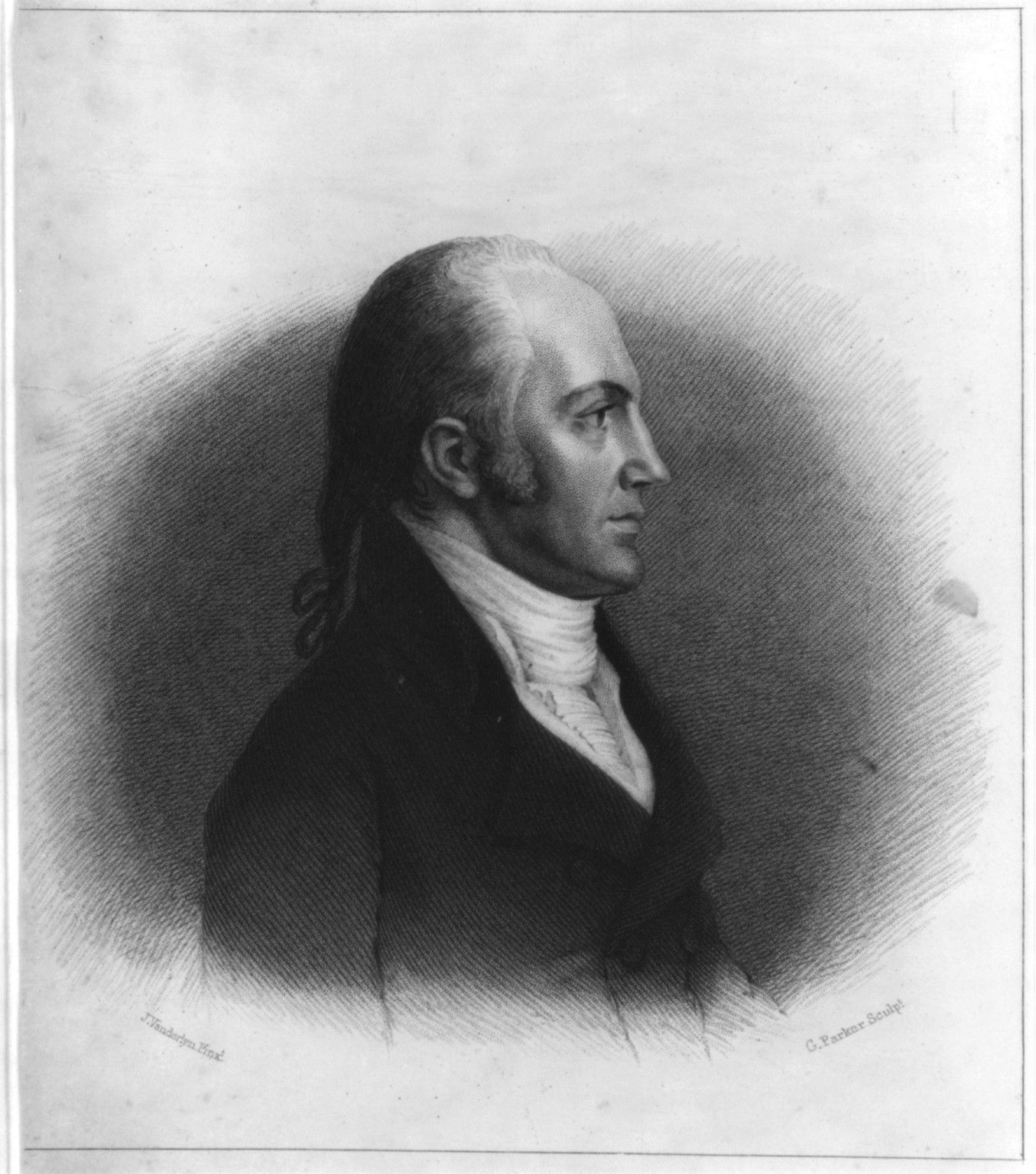
Aaron Burr, Library of Congress image
Shortly after sunrise on July 11, 1804, two parties of men rowed across the Hudson River from New York City to an isolated spot under the Palisades of New Jersey in what is today Weehawken Township. In this remote location, Aaron Burr, then the Vice President of the United States, met Alexander Hamilton, formerly Secretary of the Treasury, for their infamous duel.
There was long-standing animosity between the two in part because of political differences. The election of 1800 which made Burr Vice President increased the ill-feeling as did Hamilton’s support for Burr’s opponent in the run for New York Governor in 1804. The duel came about from Burr’s rumors that Hamilton had insulted Burr’s honor at a private dinner. A series of letters of escalating anger and tension about the incident passed between Burr and Hamilton over a series of weeks, Burr demanding satisfaction and Hamilton unwilling to give it, until the final challenge to a duel by Burr.
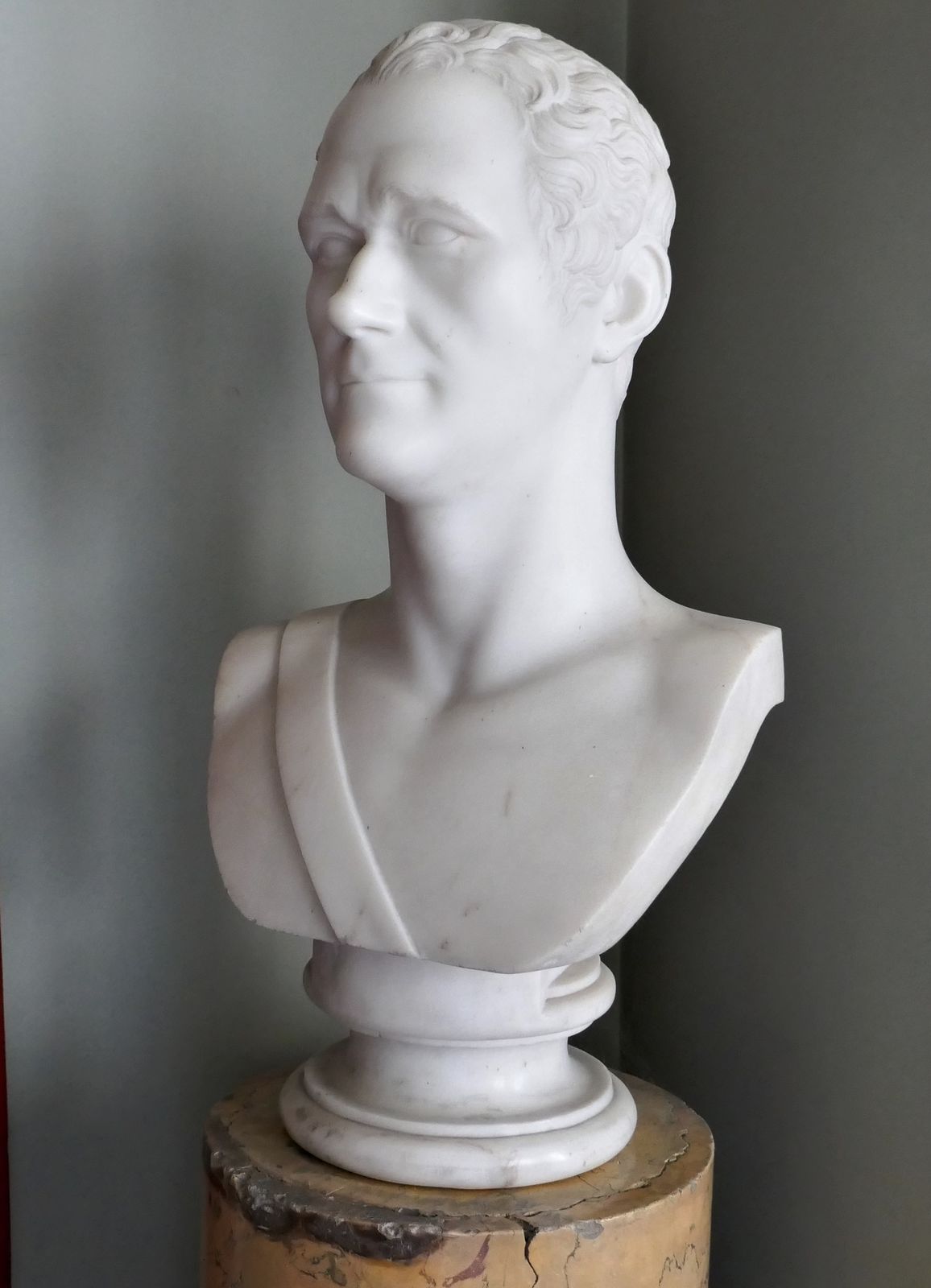
Marble bust of Alexander Hamilton
As the challenged party, Hamilton had the choice of weapons and terms. He chose pistols at ten paces. The stated distance was measured off; each man stood his ground and faced the other, pistol in hand. At the signal, “present” each man raised and aimed his pistol. The signal to fire was given. Both men fired. Hamilton’s shot missed Burr – there is some question whether he truly intended to fire at Burr. Unfortunately for Hamilton, Burr had no such qualms – his shot struck Hamilton, mortally wounding him. The two parties rowed back across the Hudson River to New York, where Hamilton died the next day.
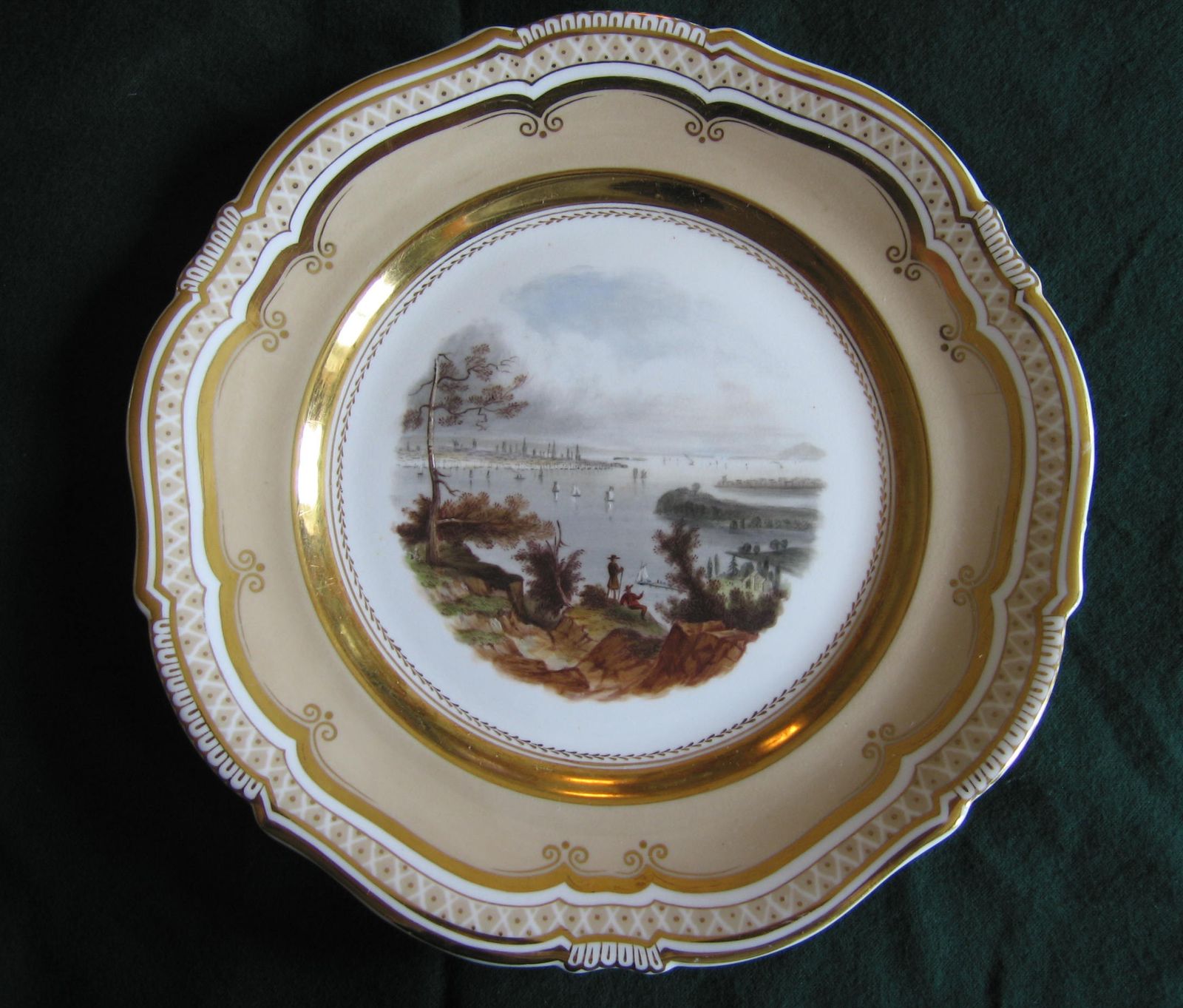
Porcelain with W.H. Bartlett scenes: New York from Weehawken.
Burr stayed in New York City for a few days following the duel. He saw that public opinion was running heavily against him and that New York law enforcement was looking for a way to charge him with murder, even though the shooting took place in New Jersey. Sensing that his situation in New York City was becoming untenable, Burr hurriedly left the City. Burr fled across New Jersey, took a ferry across the Delaware River to Philadelphia and sought refuge for a time with his old friend, Charles Biddle.
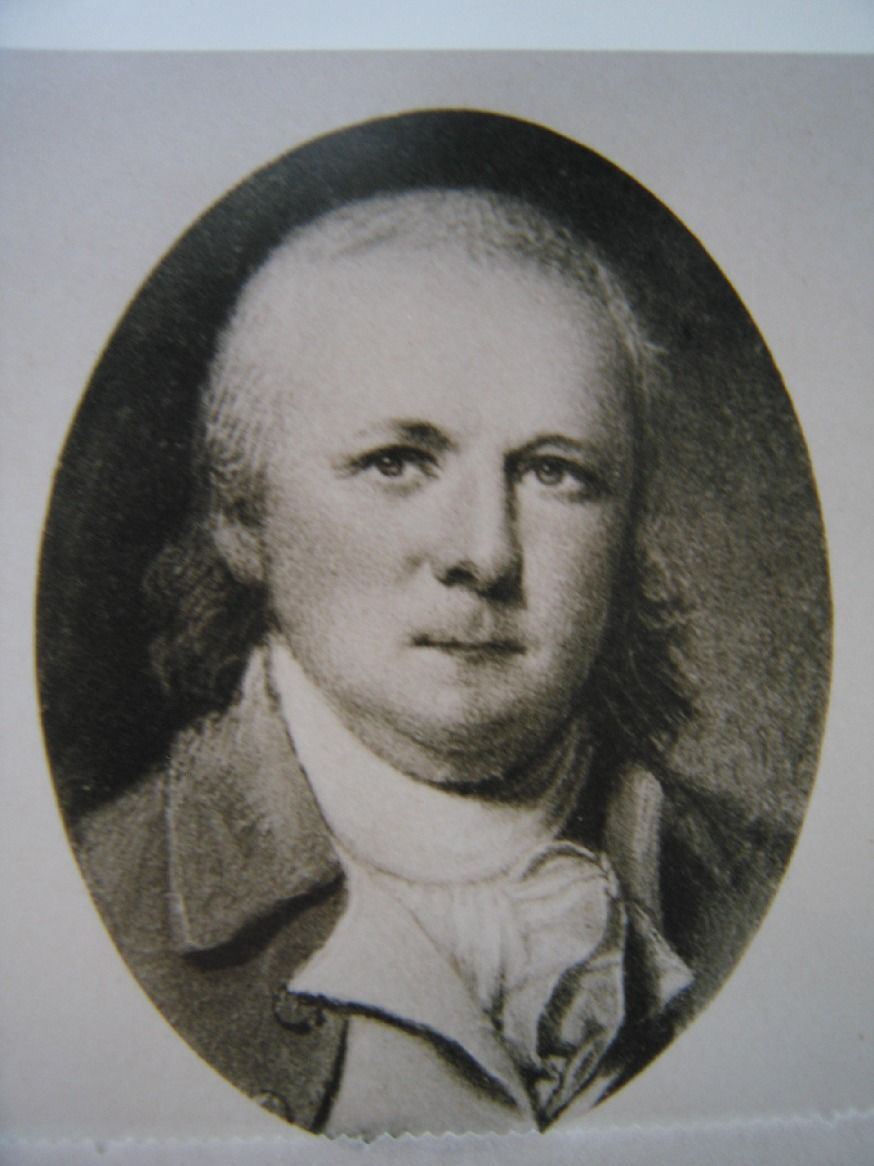
Charles Biddle 1745-1821.
Charles Biddle was born in 1745 and grew up in Reading, Pennsylvania. In his teens, Charles had the opportunity to go to sea, as the 18th century phrase put it, “to seek his fortune.” In his later years, Charles wrote in his autobiography about his life at sea in a lively and engaging style. Young Charles rose from a common seaman in the merchant service to eventually become a respected and sought after ship’s captain.
As he rose through the ranks, Charles’ personal finances improved to the point that he was able to invest in valuable cargos and buy merchant ships involved in the trade between the islands of the Caribbean Sea and the British colonies of North America. His teenage dreams of riches achieved in the Caribbean trade, by his forties Charles Biddle was a wealthy man. His home in Philadelphia was not far from the President’s House and he became involved in Philadelphia and Pennsylvania politics. Aaron Burr and Charles Biddle became good friends relying on each other for political, financial, and personal advice as well as favors. Charles thought that Burr would have been better off to remain at the Bar (an attorney) where he was “making a fortune” than to be Vice President of the United States. Biddle even introduced Burr to Theodosia Bartow Prevost, the widow of a British Army officer and Burr’s future wife.
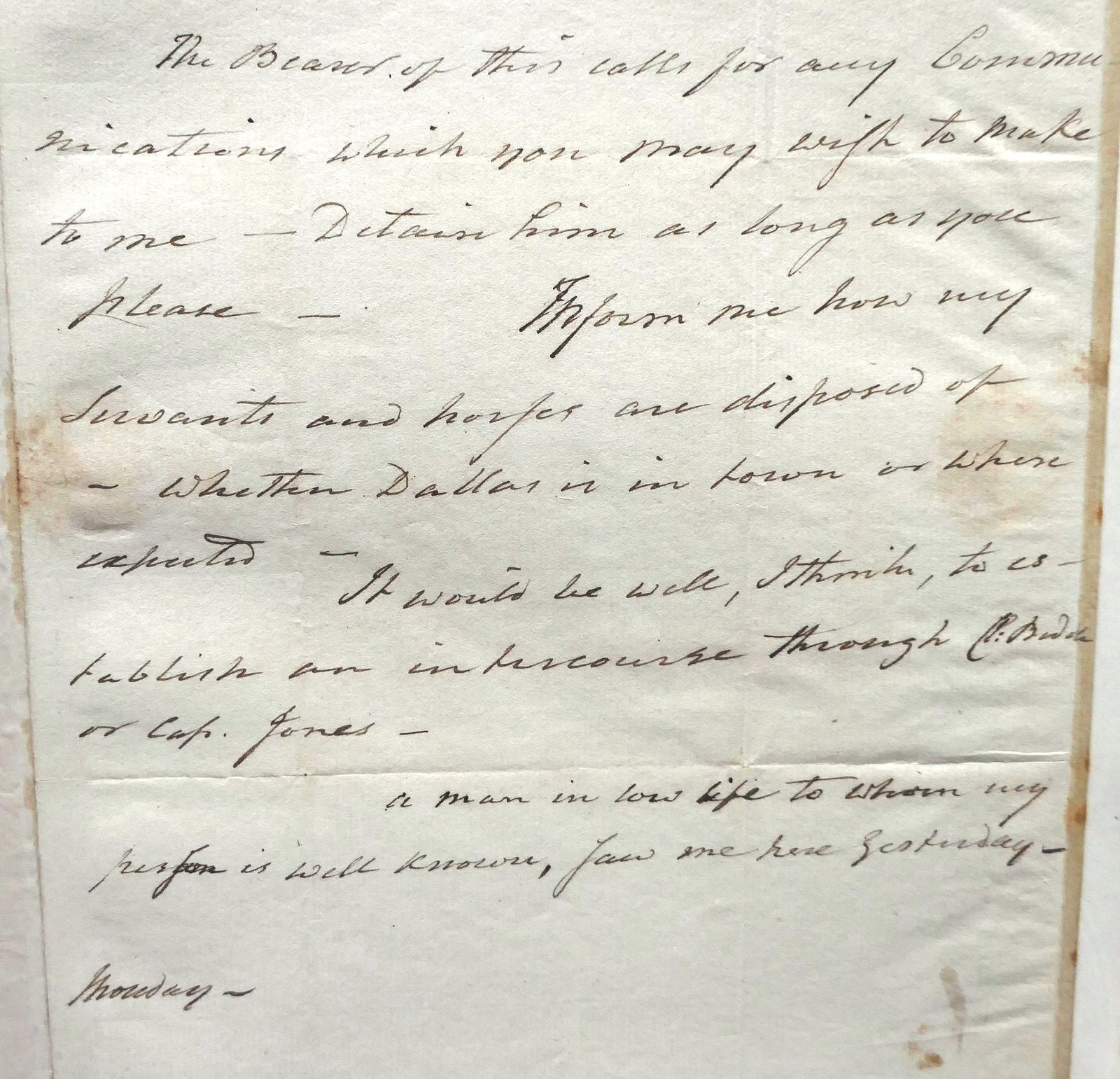
Aaron Burr to Charles Biddle, July 23, 1804.
The Andalusia archives contains numerous letters between Burr and the Biddles, several in the lead-up to the duel and for months after. Understanding that New York was considering indictment for murder, Burr spent two weeks with the Biddles while he watched from afar the aftermath of the duel unfold in both New Jersey and New York. He was eventually charged with murder in both New Jersey and New York, though he was never tried in either jurisdiction and the charges were eventually dropped.
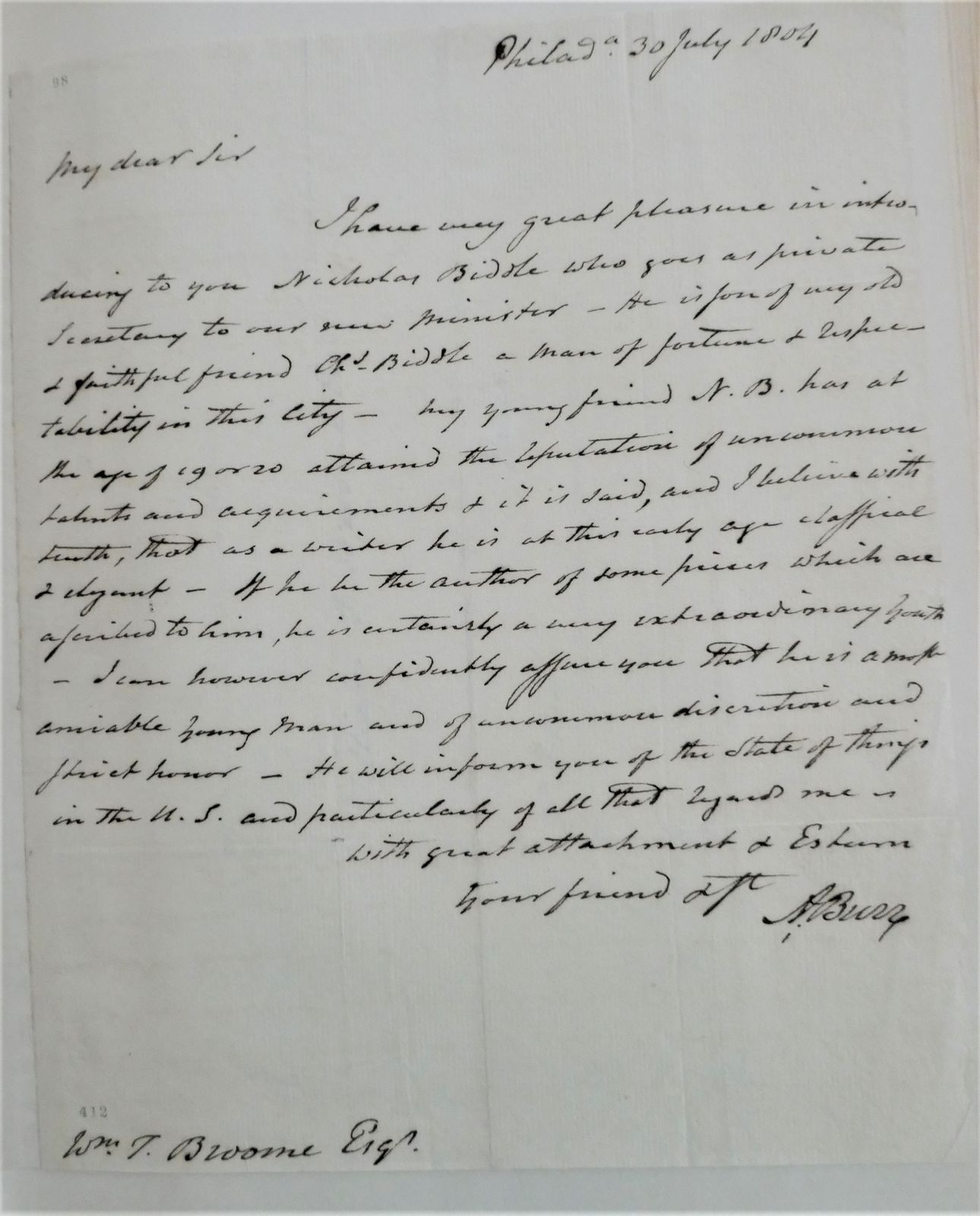
Aaron Burr letter July 30, 1804 re Nicholas Biddle.
Proceeding with his life while with the Biddles, Burr wrote another of his letters of introduction for sons of Charles, this time recommending an eighteen year old Nicholas Biddle as secretary to the Minister to France, General Armstrong.
Not wanting to intrude any longer on the Biddle family, Burr left Philadelphia. From the archived letters, we know that Burr was in dire straits financially at this time and asked Charles to sell some items for him to raise some quick cash to settle debts. He also suggests relying on a third party to act as a go-between for their correspondence.
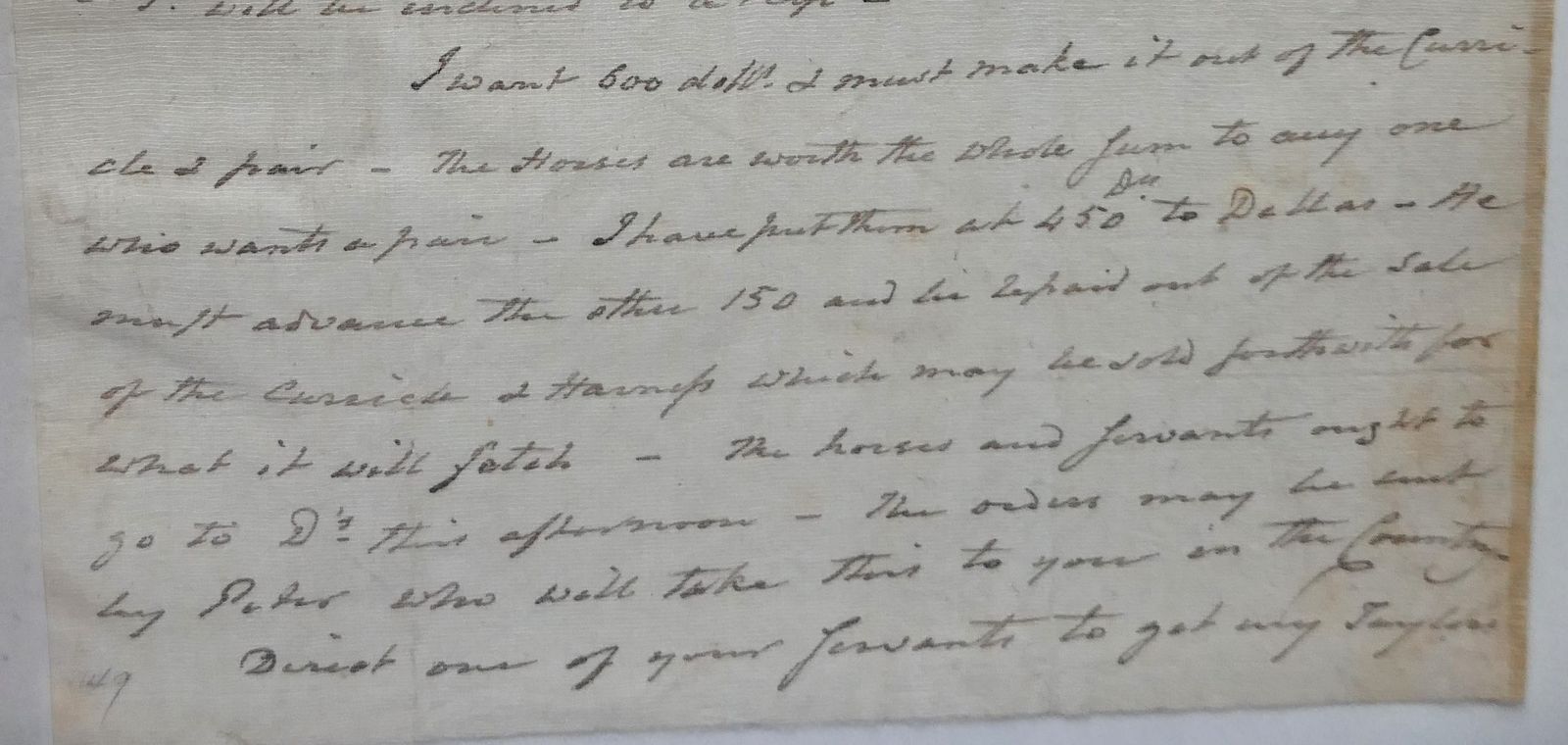
Aaron Burr to Charles Biddle, August 1804
Burr eventually made his way to his daughter, Theodosia Alston’s home in South Carolina. Here he stayed until the situation cooled off and then returned to Philadelphia. By November 1804, Burr is back in Washington, DC making plans.
With the end of Thomas Jefferson’s first term as President on March 4, 1805, Aaron Burr’s term as Vice President, and for all intents and purposes his political career, came to an end. What came next for Aaron Burr was the confusing and convoluted affair known to history as the Burr Conspiracy. Andalusia’s archives includes letters written during that time which will be explored in a future Journal article.
Written by Bert Wolfe and Connie S. Griffith Houchins


